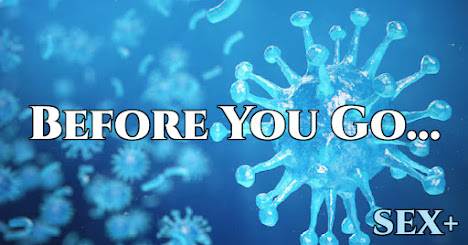INFECTIONS
- Infections occur when a pathogenic microorganisms, such as bacteria, virus, or a parasite, enters the body multiple times
- Infections can be asymptomatic, which means no symptoms, or symptomatic, which means with symptoms.
DISEASES
- Disease is a condition that results from an infection, or other factors, that cause a disruption to the body's normal function.
- Diseases will always causes symptoms or have other signs of an illness.
- Diseases can be caused by infections, but also remember that diseases are not only brought on by infections. Diseases can also happen because of genetics, the environment, or by autoimmune disorders.
Basically, an infection is the starting point to a disease, but because it's an infection, it means it has not yet turned into a disease and infections often do not cause symptoms.
All STDs start as STIs; but not all diseases start as STIs. It is only that way if it is sexually transmitted.
This is one of the main contributing factors as to why many healthcare professionals are really pushing for the correct terminology to be used. Because there is a difference. When the term STD is being used for something that is not an STD, it is misleading and sometimes can result in not the proper treatment being done.
When using the term/word, "disease," it implies that there is a medical problem with, "obvious," signs and symptoms, when that isn't always accurate, like with the incredibly common STIs, chlamydia & gonorrhea, which are often asymptomatic.
I think it's safe to say, if you are reading this blog, you're likely a sexually active adult. And we all know the risks involved when you sleep with multiple partners unprotected. I wouldn't advice sleeping with multiple people unprotected, but I cannot force my hand either, and make adults use protection. But what I can do is keep you informed. Because that's one of the reasons why I started SEX+.
So if you're going to be out there, doing your thing with multiple people...you should always be aware of symptoms and signs that you need to be aware of.
Please keep in mind that symptoms do not always occur immediately. Symptoms can take days, months, and well...sometimes years to appear. Yeah. Years. Testing is crucial.
Not all symptoms are the same or look the same. They vary for multiple reasons, including the type of sexual act that took place. The sexual activities do include vaginal, anal, oral, rimjobs, handjobs, etc.
- Bumps, sores, rashes: in or around genitals, anus, buttocks, and/or thighs
- Changes in the amount of vaginal discharge including color and smell
- Penile discharge
- Spotting between periods, or unusual bleeding
- Painful or burning-like sensation when you pee
- Painful vaginal sex
- Painful anal sex
- Pelvic pain
- Painful or swollen testicles
- Tingling or itching on or around the genitals
- Swollen or painful lymph nodes, especially in the groin or neck
- Genital rash
- Anal rash
- Rectal bleeding
Sex is amazing, it's great, and can be beautiful. But it's also a lot of responsibility. If you're going to have sex, then you need to be an adult and take the proper precautions and steps, because it's not just about you. It's about everyone you have ever been involved with and are going to be involved with.
You need to get tested. You need to stay on top of it. There's not a goddamn reason as to why you cannot get tested. None. If money is a problem, there are resources out there for you to get free testing. There's never an excuse. And if you are going to make up excuses and not take responsibility, then you shouldn't be having sex. Period.
Find free, fast, and confidential testing near you through YES MEANS TEST
Find more resources for STD testing available at a low cost even if you do not have insurance: STD Check
Free STD testing near you through FreeSTDcheck.org
I Want The Kit offers kits for free






